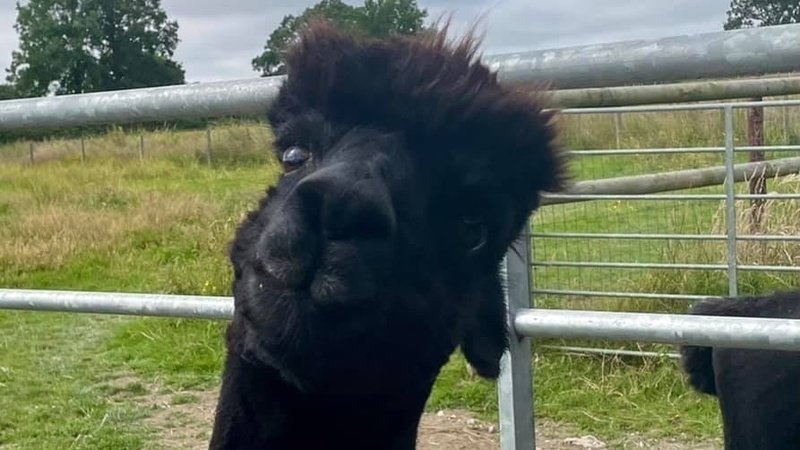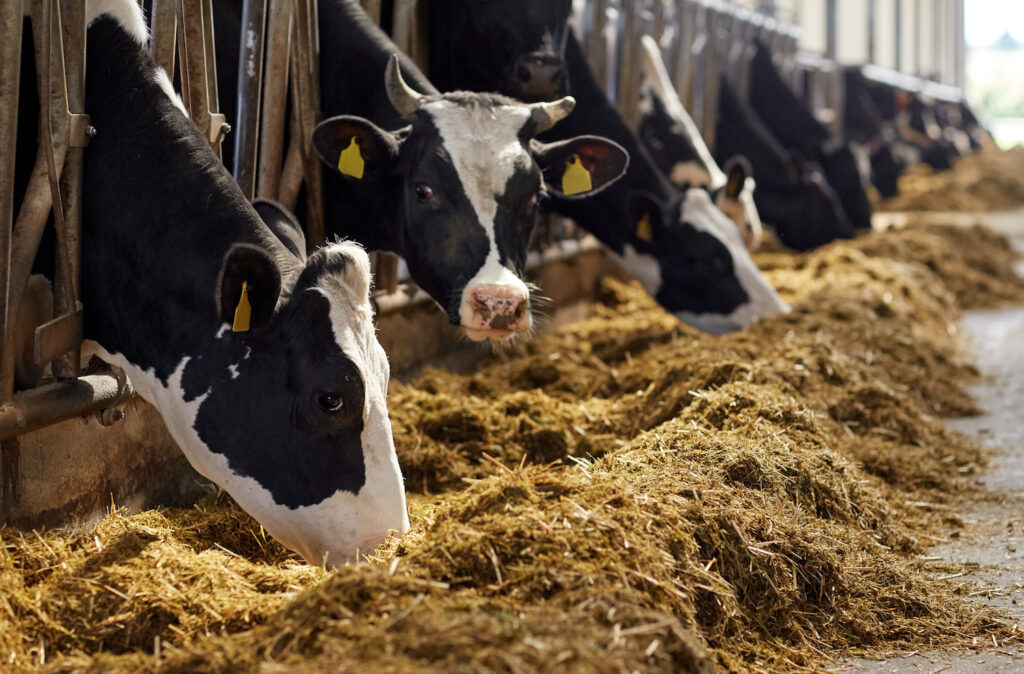Farmers speak out on bTB hardship as Geronimo dominates headlines
16th August 2021
As the case of Geronimo the alpaca makes headlines and stirs national sympathy, Farmers Guide takes a look at the mental health impacts bTB has on the UK’s farmers every single day.

Geronimo’s owner, veterinary nurse Helen MacDonald, is calling for further TB testing, as she believes the alpaca is receiving false positives due to a tuberculin protein he was injected with to increase sensitivity to the blood test. Image: Change.org/Helen Macdonald.
As the news broke that an alpaca named Geronimo would be culled following two positive TB tests and a lengthy court battle, the general public rallied in support – with a petition garnering over 100,000 signatures, a protest in London and a group of volunteers forming a ‘human shield’ around Geronimo’s pen.
With 500 cows being culled every single week due to TB, leaving farmers economically and emotionally devastated, the case has left farmers questioning, where is the public and media fanfare for cattle lost to this disease?
Bovine TB causes significant financial and mental distress to farmers, who are often left in limbo for extended periods of time. And while the case of Geronimo has prompted a public outcry, there have been no such heavily publicised calls to save the tens of thousands of cows slaughtered as a result of the disease each year – or to help support the farmers who face the devastating consequences of bTB.
Farmers react to #SaveGeronimo
Geronimo’s case has prompted many farmers to take to social media to share their bTB stories and the distress it causes.
Dairy farmer Abi Reader, who revealed on Twitter that her farm’s latest round of bTB testing revealed 22 inconclusive results, having previously lost 10 per cent of the herd, said: “Farmer to farmer, this is a direct message to Helen who owns Geronimo. My heart goes out to you. Myself and many other farmers have been in your place. Myself and many other farmers would give a lot to not have to say goodbye to their animals.
“You’ve had Geronimo since 2017; I’ve had some of my animals a lot longer than that. They are descended from my father’s and my grandfather’s herd and they are embedded in every part of my life, so I understand what you are going through and I feel that you are undermining the current TB control.
“The tests aren’t perfect […] but they are all we have. There’s nothing else out there and you cannot keep testing until you find the negative result you want. We have to keep fighting; don’t let it drop but don’t undermine it, because there are thousands of us out there who are going through so much heartache and you are making it incredibly difficult.”
Campaigners have raised concerns over the impact of ‘priming’ on alpaca bTB tests, citing cases where alpacas have tested positive for TB, then shown no signs of infection at post mortem. Farm vet and bTB expert Sarah Tomlinson said on Twitter: ‘As with Covid people can have it and spread it but have no symptoms or physical disease, animals can have TB as it’s a slow progressive disease and we test regularly. Lesions aren’t often found at slaughter, also tiny ones aren’t obvious, doesn’t mean they aren’t infectious.’
“Farmers don’t feel rewarded”
Farmers Guide spoke to Edward Richardson at Farm Cornwall, which offers advice to farmers on a range of issues, including bTB. Mr Richardson said bTB breakdowns create a “rollercoaster” of 60-day testing, movement restrictions, paperwork and dealing with the APHA, with no idea when it will all end.
One farmer Mr Richardson worked with was unable to make sales for two years, while another lost 40 cows in one hit. On top of this, many who farm alone deal with these issues in isolation.
As well as the financial hit of suddenly not being able to sell livestock, farmers are then required to feed and house cattle that cannot leave the farm, incurring further costs – a situation that is leaving farmers stressed, anxious and depressed, wondering how they will pay their bills and when the process will end.

As well as the financial hit of suddenly not being able to sell livestock, farmers are then required to feed and house cattle that cannot leave the farm, incurring further costs – a situation that is leaving farmers stressed, anxious and depressed, wondering how they will pay their bills and when the process will end.
For those who have chosen to leave the industry, they can find themselves in a situation where they suffer a TB breakdown as they go to sell, meaning they can no longer sell milk as their contract has ended, but can’t sell their cattle either. The most challenging group, Mr Richardson says, is those who produce dairy heifers for other farmers, as they cannot milk and are reliant on income from selling the heifers.
Mr Richardson says these stresses are compounded by the fact that farmers do not feel valued by the public or the government. “Farmers don’t feel rewarded anymore. One farmer said to me that at the beginning of the pandemic they were waved at as they were key workers, but as it’s progressed they’re ‘just another nuisance on the A30’.
“They don’t feel important at all, the government doesn’t give them any rewards to tell them they’re important and they’re also blamed for climate change. […] I feel it’s time the government came out and told farmers they are important.”
Mr Richardson also called for a more accurate testing regime – for all cattle moving from one region to another – and greater support for farmers under movement restrictions, in dealing with potential animal welfare issues that may be building as a result.
For those farmers who are struggling with their mental health as a result of bTB, Mr Richardson said: “There are organisations out there to help, including us in Cornwall, Farm Cornwall; FCN, RABI. Don’t be alone. Don’t think there isn’t help out there. There is the TB Advisory Service to have a look at.
“But if you just want somebody to talk to, I’ve been a farm manager myself, I lived through foot-and-mouth, I understand how it affected me when I was on farm. Just don’t be alone, talk to somebody, pick the phone up. Or if you’re the husband or wife of that person then get them to ring. We’re there to help, we will come talk to you on the farm.”
Getting support
If you are struggling with mental health issues, the following organisations can provide support:
FCN: 03000 111999
RABI: 0808 281 9490
RSABI: 0300 111 4166
Farm Cornwall: 01736 367589/07775 667825
DPG Foundation: 07984 169652
